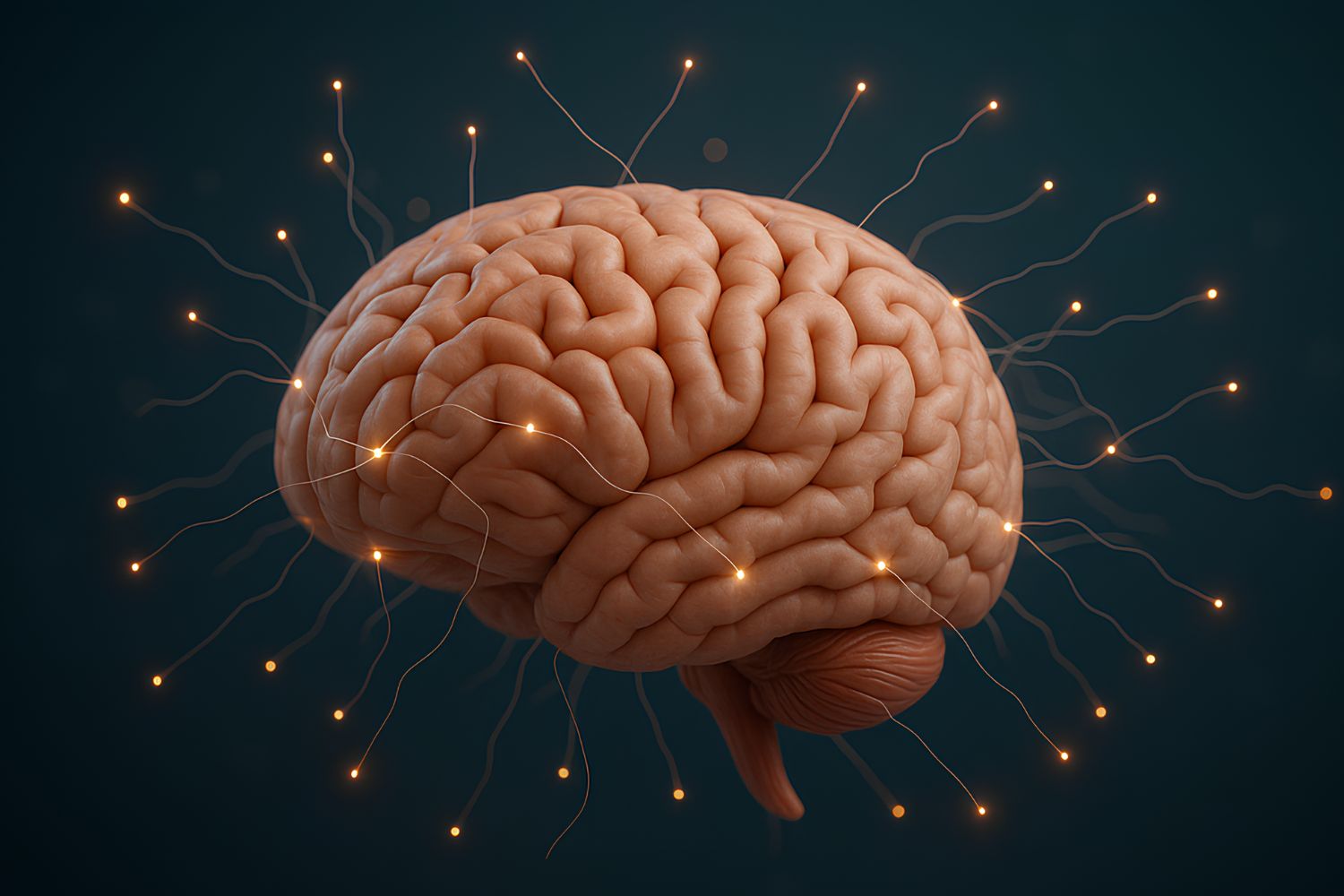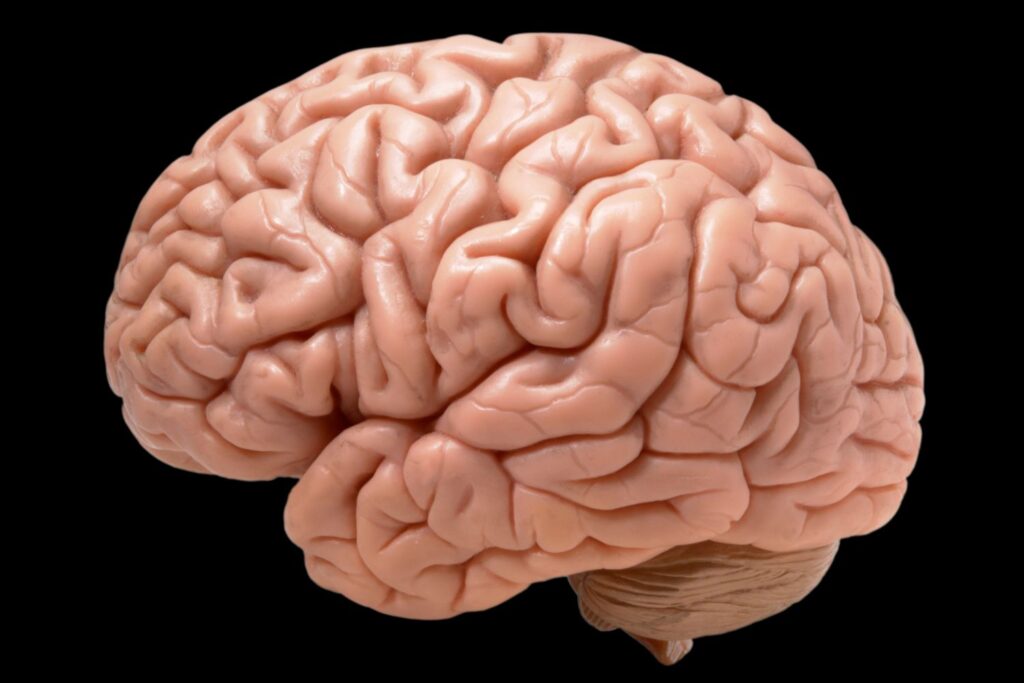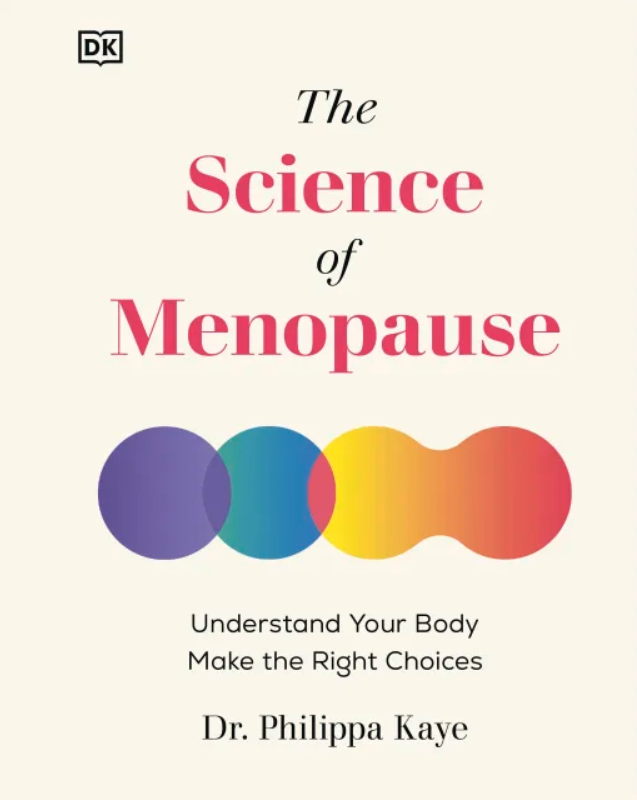
Perimenopause and memory loss: everything you need to know
If you’ve ever stood in the middle of a room and thought, “Why did I come in here?”, you’re not alone. Cognitive changes during perimenopause and menopause are common, but they can also be unsettling.
When headlines link estrogen levels to Alzheimer’s, the anxiety can spike as quickly as your hot flashes, especially if you’ve experienced losing a loved one to the long goodbye, something I know all too well.
But knowledge is power.
That’s why I turned to Shelby Tutty, certified menopause educator and trained health coach, and the voice behind The Periprofessional on Substack, to help untangle what’s normal, what’s not, and what we actually know about the connection between perimenopause, menopause, and memory loss in women.
As a writer and advocate who blends science, humor, and lived experience, Tutty is the perfect person to break this down in plain English.

So read on for an in-depth interview that debunks common misconceptions about perimenopause, menopause, and post-menopause and provides digestible insights into what we know today about perimenopause and memory loss.
The Midst: Let’s get clear on the terms first: What’s the difference between perimenopause and menopause?
Shelby Tutty: Historically, we’ve only ever talked about “menopause,” lumping the two stages together, but there are some differences.
Perimenopause is the roughly two to 14 years before reaching menopause, which is when your ovaries have stopped releasing eggs and hormones (no more periods!). It’s an ovary retirement party.
Menopause is one day — the day you’ve gone 365 days without having a period. The day after and then for the rest of your life, you’re postmenopausal (but everyone just says they are menopausal). You can also reach menopause surgically if you have your ovaries removed, or medically/chemically if you need to suppress your hormones for a specific medical treatment.
The average age of perimenopause is 45. Yeah, I said it… 45! It’s closer than you think.
Perimenopause is the WTF phase, and it’s during perimenopause that we most likely feel the effects of our ovaries retiring because it doesn’t just happen in one fell swoop. However, many women continue to experience symptoms once postmenopausal.
Our ovaries stop functioning in spurts over time, sometimes releasing too much estrogen and sometimes not enough from what they’re normally used to. This variability and unpredictability can cause symptoms like: Who the heck turned on the heat in this room to 200 degrees? Why does my vagina feel like broken glass inside? I was just laughing, why am I crying now? And brain fog that makes you wonder if you’re developing dementia.
What are some of the most common symptoms of perimenopause?
The most common symptom of perimenopause is skipping periods, but this doesn’t happen until mid-perimenopause. Some symptoms may have already started without you realizing they were perimenopause-related, like sleeping issues. Sleep issues are typically the first thing that women notice starting perimenopause, which pops up because progesterone (the sleepy hormone) starts to decline first before estrogen.
Eventually, you’ll start skipping periods — one or many — until you go 365 days without a period. Second to skipped periods, hot flashes affect up to 80% of women either during perimenopause or postmenopause. For the full list of symptoms that can be linked to the fluctuating hormonal rollercoaster of perimenopause, check out my post about the 100 symptoms of perimenopause.
What’s the link between perimenopause and memory loss (or brain fog), and is that the same thing as early dementia?
Perimenopause and menopause don’t just affect our ovarian function and reproduction; they can affect our entire bodies, including our brains. But don’t despair because not all brain changes during this time lead to dementia, and there’s much we can do, which I discuss below.
Many women going through perimenopause express concerns that their brains don’t seem to work as well as they did when they were younger. Neuroscientists understand a bit about why brain fog is expected during perimenopause. They’ve confirmed what we’ve suspected all along, that we’re not crazy. For now, they believe that fluctuating and declining estrogen levels (and possibly other hormones) are to blame, as well as a busy modern lifestyle.
According to the Oregon Health & Science University‘s Center for Women’s Health, brain fog can feel so severe that we question whether we’re developing dementia or early-onset Alzheimer’s, but there are clear differences between perimenopause brain fog and the memory loss and cognitive decline associated with Alzheimer’s, a form of dementia.
- Forgot the name of a fork? Perimenopause brain fog
- Forgot how to use a fork? Dementia
In my article That Thing on the Thing, I wrote about the types of brain fog we can experience, from forgetting your best friend’s name to having difficulty concentrating. It’s one thing to read about “cognitive performance” and another to experience the frustration of how this truly shows up in our lives, affecting our self-esteem, identity, relationships, and careers.
Although it may not feel normal, perimenopause or menopausal brain fog is not the same as early dementia. Brain fog during perimenopause is expected and usually still falls within the range of normal based on what we know about estrogen’s effects on our brains. About 40–60% of midlife women report some cognitive symptoms. According to The Menopause Society, a leading scientific professional organization that studies menopause and midlife health, early dementia is rare in midlife, affecting 293.1 women per 100,000 women worldwide.
If you have any concerns, please let your doctor know so they can do a full cognitive health check.

We hear that estrogen “protects” the brain, but what does that actually mean? Can you break down the science-y stuff in human terms?
Oh, you’re going into dangerous territory here by allowing me to geek out on this science stuff. I want to provide real information and not just fluff.
We used to think that estrogen was only important for our reproductive abilities, but since the 1990s, we know that estrogen is much more of a whole-body hormone than just a reproductive one. We have estrogen receptors all through our bodies, including our brains. Estrogen receptors act as little portals between circulating estrogen and our cells. When the cells are provided with estrogen, it tells them to behave in a certain way, and when the cells don’t receive estrogen, they react differently.
Our typical pattern of releasing estrogen in our reproductive years keeps our cells happy by making them function optimally. Without estrogen, our cells begin to age. Skin dries out, bones get weaker, allergies may develop, and weird things may start happening, like itchy ears, hot flashes, and restless legs.
Our body’s estrogen affects cognitive performance by acting on brain regions that have a high concentration of estrogen receptors, such as the prefrontal cortex and hippocampus.
The prefrontal cortex is the part of the brain responsible for critical thinking, remembering, planning, and executive functioning. The hippocampus is located in the limbic system, which controls the autonomic (aka automatic) nervous system, emotions, and body temperature regulation. When these parts of the brain don’t receive their predictable pattern of estrogen and hormones, your brain can go a little haywire until your spiking and dropping hormone levels during perimenopause level off after menopause.
Yet, there is so much about this that we don’t know. And, it has been difficult to study a woman’s brain while she’s alive. Lisa Mosconi, a leading PhD brain researcher and author of The Menopause Brain, recently developed technology that allows researchers to observe a woman’s brain while alive and over time to detect changes that occur.
Her five-year-long, groundbreaking study revealed an increase in estrogen receptor density and activity in the brain during perimenopause. It was previously believed that the brain’s estrogen receptors ceased functioning after menopause. The study also identified a link between the location of the density and perimenopause and menopause symptoms, such as cognitive issues.
One thing to stress here is that it has not yet been determined whether the presence of dense estrogen receptors causes symptoms like brain fog or if the symptoms cause the dense estrogen receptors. Dr. Mosconi will continue her research on the brain and menopause. She is truly a celebrity in the field of women’s health science.
Is there a window of opportunity to start hormone replacement therapy (HRT) for brain benefits, or is it too late after a certain age? I also noticed that you mentioned a transition from calling it HRT to HT. Could you share a bit about that?
I’m glad that you asked this because one of the misunderstandings about HRT is that it helps prevent cognitive decline and dementia, but it has not been proven conclusively to do so. This should be a red flag if you hear influencers, even medical influencers, say this. They are going against the latest medical recommendations.
An important study showed that prescribing HRT in older postmenopausal women has been shown to increase the risk of developing dementia. In women going through the perimenopause process to menopause, it appears that HRT has a neutral effect. The only population for whom hormonal estrogen may show some cognitive benefit is women who reach early menopause, before age 40.
I want to stress that just because a study has shown a potential benefit to one group, it cannot be applied to everyone. There are so many variables, and it also depends on the type and combination of hormone therapy.
However, recent studies show that hot flashes and night sweats (medically called vasomotor symptoms) can have an impact on cognitive health. It’s believed that if we can get the vasomotor symptoms under control with hormone therapy, then maybe we can help prevent long-term brain health issues through fewer hot flashes and better sleep from fewer night sweats. More research is needed, you’re going to hear me say this a lot.
To answer your other question, the HRT naming scheme is a funny story about how things adapt over time.
It used to be called HRT for hormone replacement therapy, but the name was changed because using the term “replacement” was incorrect. It was once thought of as an appropriate term because they believed they were restoring our feminine vitality by replacing our hormones. Menopause used to be thought of as a hormone deficiency disease that was curable by replacing hormones, which is not true. The hormones provided for HRT are so minuscule that they aren’t replacing our hormones. They are providing just enough estrogen to trick your brain into thinking you’re making a little bit. Any hormone therapy does not cure or prevent menopause.
From there, it was first changed to menopause hormone therapy (MHT), which is also iffy because it implies that only menopause patients can use it (which was at one time the recommendation). So, they got rid of “menopause” and now the preferred term is HT or hormone therapy. However, you can use any term you’d like to call it. Most people know it as HRT.
What does the research say about menopause increasing the risk of Alzheimer’s or other dementias in women? And is it just correlation or causation?
We know that menopause can increase the risk of Alzheimer’s and dementia because estrogen is thought to keep the brain clear of special proteins linked to the development of these conditions. According to Dr. Philippa Kaye, the author of The Science of Menopause, the risk increases if a woman has her ovaries removed before her natural age of menopause or reaches menopause early (usually before age 40).
According to a new study that supports these earlier findings, women who experience menopause under the age of 40 are more likely to have cognitive decline compared to those who reach menopause at an older age. We’ve known this for a while, however, this study compared women of different ages against each other and included men.
But today, we just don’t know enough, which is frustrating for everyone. It’s hard for scientists to distinguish completely between menopause and aging. Even a normal and healthy aging brain experiences changes. We understand a little about how estrogen plays a role, but more research is needed to understand its complexity.
For now, as we understand it, our body’s estrogen protects neurons and cognitive function by supporting our production of an important neurotransmitter, acetylcholine. Brain fog can increase when acetylcholine production is low or blocked (like when we take acetylcholine-blocking medicines like Benedryl). It also enhances glutamate neurotransmitters, which help us learn new things. It regulates and buffers neurons by managing their operation and protecting them from harmful free radicals.
And, remember, just because something is a risk factor doesn’t mean it will happen. Going through menopause does not mean you will develop dementia. There are so many risk factors involved that will determine this. We know that more women than men develop these diseases and think estrogen is involved; we just don’t have all of the answers yet. But further below, I have some good news.
Are there specific symptoms during perimenopause that might hint at future cognitive decline, or is that fear-mongering?
We know that in perimenopause, the areas hardest hit are verbal learning and verbal memory, things like learning new information and word recall. As I mentioned, we can see some cognitive symptoms such as these during perimenopause, but these typically bounce back for most women after reaching menopause.
Keep in mind that we’re still aging, and that can also take a toll on our brain health. However, there is a wide range of what is considered normal before dementia becomes the diagnosis.
According to The Science of Menopause, we know that the amount of gray matter typically returns postmenopause. Gray matter is responsible for managing information, especially in memory. The volume of white matter doesn’t return after menopause; however, it seems that we develop more connectivity within the white matter than men do at the same age.
I would look for the severity of the symptoms falling outside the range of normal as something to be concerned about, as some of these perimenopause cognitive symptoms are similar to the first predictors of Alzheimer’s, like verbal memory issues. It can be hard to know what falls outside normal, so it’s best to work with a physician who can guide you.
To highlight the complexity of this, a recent study states that key factors for Alzheimer’s may appear in our 20s and 30s, well before midlife.
According to The Menopause Society’s Guidebook, “Typical age-related memory loss does not often worsen, whereas the signs and symptoms of Alzheimer’s disease and other forms of dementia are progressive.”
I’m pretty deep into my perimenopause experience, but five years ago, I was struggling with brain fog. I didn’t have the benefit of knowing that it was perimenopause-related, so, of course, I thought I was on the fast track to dementia. But once I learned more about it, got closer to menopause, and did the work to overcome what I could, I’ve noticed a huge improvement in my brain’s function. I challenge my brain daily by being mindful, giving it things to remember, and learning to laugh whenever I screw up, which I still inevitably do from time to time.
Hot flashes and night sweats affecting future cognitive decline are something I’ll be watching for more information, as this is a personal interest of mine.
What are some lifestyle changes women can make during perimenopause to support long-term brain health?
Good nutrition, sleep, exercise, not smoking, and stress management are all important. Some good news… According to The Menopause Society, medical experts estimate that 40% of dementia cases can be prevented or delayed with lifestyle measures that support overall health and cognition.
At last year’s Menopause Society’s medical conference, the two big things they pointed out and repeatedly stressed for brain health were the importance of community (isolation is damaging to our brains) and doing hard brain activities such as learning new things.
Recently, Jen Gunter, MD, a women’s health advocate and menopause expert, reported on new information that the shingles vaccine (Shingrix in the US) may reduce the risk of developing dementia over six years (the length of the study). Shingles and herpes simplex virus may be risk factors for developing dementia.
How can women advocate for themselves if they’re worried about memory loss or cognitive changes and their doctors are dismissive?
I wish the answer were as simple as finding a new doctor, but it’s not. The best approach to working with a doctor is not to self-diagnose but to present your symptoms or concerns. Mention any history of Alzheimer’s or dementia in your family, as there appears to be a genetic link.
If you feel dismissed by your doctor, find high-quality scientific studies linking perimenopause and menopause to brain health to bring with you to share. Pauline Maki, a PhD researcher and professor at the University of Illinois Chicago, is an excellent source for information on women’s cognition. Doctors practice what’s called “evidence-based medicine,” which means they look at the evidence. That evidence needs to come from a respectable source, such as a peer-reviewed medical journal. Dr. Google isn’t going to cut it.
Another great tip is to schedule a separate appointment to discuss your memory loss or cognitive changes. Trying to lump this in with another visit, like an annual physical, isn’t the best idea. This type of appointment needs its own time.
What’s one thing about menopause and brain health that you wish more women knew?
I want you to know that there is so much you can do to help yourself. You don’t have to be 100% perfect all the time, and it doesn’t have to cost any money. It’s not all within our control, but putting in the effort is more helpful than you may think.
Examples include reading a book, learning a new skill, trying to memorize something, researching new things, getting together with friends, and speaking with your doctor early if you have a history of Alzheimer’s or dementia in your family. Try not to outsource your brain’s activities to your phone or other devices. Make your brain do hard stuff. It’s use it or lose it.
Also, give yourself periods of brain rest. Our busy lifestyles don’t allow much time to stare out the window and daydream. Our brains work hard for us and need rest, too.
If you had 30 seconds to give every woman in her early 40s a pep talk about brain health, what would you say?
Understand that showing signs of brain fog is not your identity. You’re still the same smart and lovely person. During perimenopause, biological changes are happening as part of the process, so don’t use this experience to be self-critical. We can only control so much, so show yourself understanding and patience, which will go a long way in coping with these brain hiccups in perimenopause.
Any last words before we wrap up?
Perimenopause and menopause don’t have to be scary. It can feel like a lifelong experience, but it’s not a life sentence. Take the time to learn about the changes going on in your body. This is a time of major adjustments, and if you can remove the surprise factor, you can help manage your stress, which can have a major impact on the intensity of your symptoms.
Align yourself with reliable sources and be aware that perimenopause and menopause are big business now, with all sorts of misinformation and products that we don’t need.
Thank you, Shelby, for demystifying our questions about perimenopause and brain health.
The brain is complex, but we don’t have to be confused. Menopause may bring changes, but it also brings a new opportunity to tune into what our bodies (and minds) need. Big thanks to Shelby for shedding light — and laughter — on a topic so many of us quietly worry about while we’re in the midst of it.
Disclaimer: This information is not intended to diagnose, treat, cure, or prevent any medical conditions, nor should it replace licensed medical expertise or treatment. The information provided is for informational and educational purposes only and is not a substitute for medical care.




